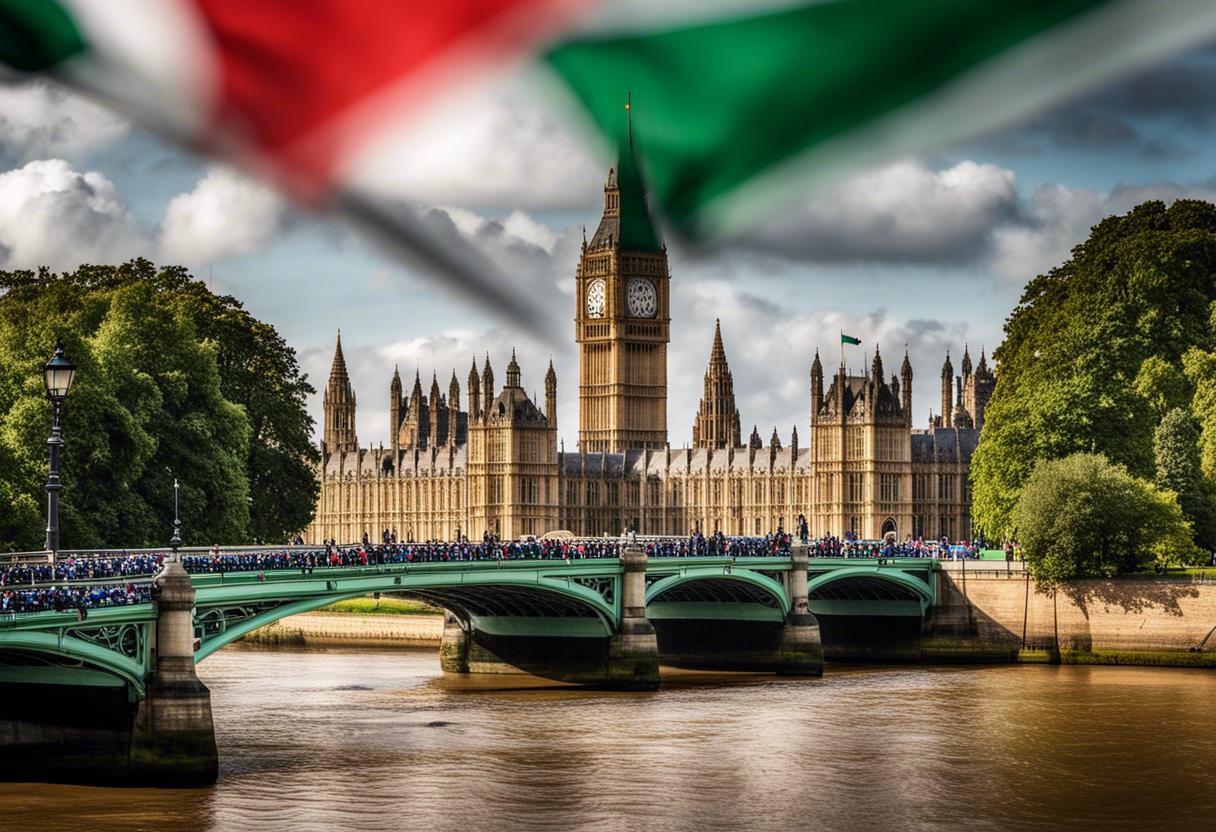Keir Starmer, Leader of the Labour Party, is set to express his strongest support for Palestinian statehood in the party’s manifesto, to solidify the backing of the party’s left-leaning supporters. Those familiar with the document have conveyed to The Guardian that the pledge to formally recognise Palestine, which doesn’t hinge on a finished peace process or a veto from a neighbouring nation, is expected from Starmer.
The manifesto will be finalised in a meeting with union representatives on Friday and inaugurated the following Thursday. According to party sources, the document will contain a prudent collection of policies, in contrast to the manifesto under Jeremy Corbyn, which was extensive on policy details, released in 2017 and 2019.
One informant privy to the draft manifesto document expressed concerns over the potential for Conservatives to exploit any financial commitments. Without funding, however, policies become unattainable.
In what could be seen as a warm gesture towards trade unions, the Labour Party is contemplating reducing the retirement age of ambulance workers to enhance recruitment and retention. This tactic might set a precedent for other NHS workers, providing a fairly economical solution to improve personnel numbers.
Unions have urged for a specific duration on the party’s utilisation of the private sector in reducing NHS waiting lists. It remains uncertain whether this proposal will be included. The manifesto will promise to examine public sector pay settlements, but not to increase public sector funding.
In addition to vows on workers’ rights and teacher recruitment, the manifesto may also include “driving down” net migration, without a precise goal. Military identification at polling stations will be advocated, but complete abolition of voter ID isn’t included.
Despite pressure, no commitment to removing the government’s two-child benefit cap is included, although there will be an intent to ensure this becomes a priority as soon as financially viable. The manifesto will heavily emphasise security, featuring an image of Starmer in military attire.
The mention of the Middle East is unexpected, given that the primary focus of the manifesto revolves around Starmer’s five main “missions”: the economy, education, health, energy and crime.
In a move mirroring sentiments expressed earlier this year by David Cameron, the ex-UK foreign secretary, Labour is dedicated to the acknowledgement of Palestine as an independent state which is an integral part of a peace procedure. Mr. Cameron hinted earlier during a meeting with the Conservative Middle East Council, that it was essential to assure Palestinians of the committed and unwavering progress towards a solution involving two states. His stance invited criticism from within his political ranks.
The stance that Labour has taken might invite displeasure from Israel. Previously, Binyamin Netanyahu, Israel’s prime minister, voiced his anger when Palestine was formally recognised by Ireland, Spain and Norway in the month of May. Labelling this recognition as a “gift for terrorism”, Mr Netanyahu’s displeasure was evident.
During the initial phases of the Gaza conflict, it was observed that Mr Starmer was cautious to not deviate much from the pro-Israel posture ideally maintained by the British government and the United States. This standpoint sparked outrage among the Labour’s leftist members. It became a contentious issue particularly when, in an interview, he expressed his belief in Israel’s right to disconnect power and water supply to Gaza’s residents.
As of late, Labour has shown a greater readiness to shift from the government’s stance. This includes a tacit endorsement of the International Criminal Court’s chief prosecutor’s choice to seek Mr Netanyahu’s arrest warrant.
Labour aims to regain some of its lost ground among Muslim and progressively-minded voters who are increasingly dissatisfied with its current foreign policies. There’s concern among party officials about possibly losing two urban constituencies – Bristol Central and Sheffield Hallam – as a consequence of recent developments.
In the upcoming “clause V” meeting scheduled on Friday, the party’s manifesto is expected to be approved by union leaders and Labour authorities. Heated discussions are anticipated surrounding Labour’s policy on workers’ rights, which has been a topic of debate between the party and the unions for several weeks.
There is speculation from those close to the party that Labour has committed to implementing the entire package of workers’ rights. However, rather than an outright ban, it seems the manifesto will include a planned phasing out of zero-hours contracts, a decision that may displease some unions.

